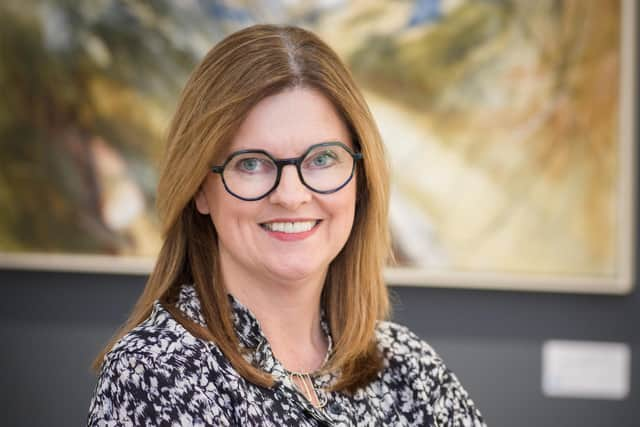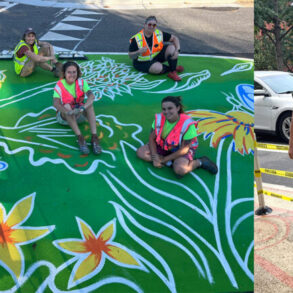The reality is very different! Four years ago with ‘impeccable timing’ I opened the Watermark Gallery in Harrogate.
Three weeks later the first Covid lockdown closed us down for seven months. So much for that carefully drawn business plan.
Somehow we survived and we are now entering our fifth year with a lot more knowledge and much less naivety about the economics of running an art gallery in the 21st century. It is a pleasure and a privilege but it is also a business with all the challenges and costs every business faces.


Despite all my pre-opening planning and a 30-year previous career in marketing, I had no idea what running a gallery business would really be like today. With over 60 artists to represent, and roughly 1,000 products, most of our week is taken up moving heavy paintings and objects from room to room, window to store, often suspended high up on a ladder trying desperately to reach a hanging cord.
Alternatively, we’re on all fours wrapping and unwrapping paintings with copious amounts of bubble wrap.
Dealing with customers is clearly a big part of our job. It’s also the most rewarding and the most difficult in equal measure. I’d been in marketing and retail before setting up the gallery and thought I knew a bit about customer service. I was wrong.
An art gallery is a place where people come, not just to buy but to look, be inspired and to meet like-minded people. Think of us as the equivalent of art social services.
Whilst customers can be unpredictable its the business side of running the gallery that is much more challenging than I ever imagined.
During Covid we received a small grant and furloughed our staff but it was the period after the pandemic that was much worse. The cost-of-living crisis, the Liz Truss debacle, the death of the Monarch, the crises in both Ukraine and the Middle East, all sent people fleeing from high street.
Little had I known that issues of such national importance would have such an impact on my independent business. We have been fortunate to survive. Four commercial galleries in Harrogate closed in 2022, their vacant premises still evident today.
Against this backdrop we’ve had to become a lot tougher and smarter about our business. I secured an £8,000 Government grant aimed at encouraging small businesses to export and used that to make our website ‘US-friendly’ and to visit the annual Affordable Art Fair in New York. Since then we have sold art works to the USA, Finland, New Zealand, Australia, Dubai and Germany.
I am also one of the first 50 women to join the Northern Powerhouse’s WIN (Women’s International Networking) programme designed to support female-led businesses to grow and expand.
We’re fortunate that we don’t hold stock. Artwork is given to us on a “sale or return” basis and if it doesn’t sell within a reasonable amount of time then we can give it back. If it does sell, we earn commission and it’s from this that we pay our VAT and our overheads primarily rent, business rates, staffing, energy and marketing costs at around £120,000 a year.
If it doesn’t sell we don’t earn but those overhead bills still have to be paid.
Some customers, including some artists, don’t understand this and think we are depriving the artist of an income. But the business of creating art is so much more than a finished canvas and has a whole economy of suppliers attached to it, from framers and glass makers to material suppliers, web designers and couriers to name just a few.
Galleries like ours provide a window of awareness and opportunity for artists, without whom they could remain largely unknown. Since launch we have sold over 1,000 paintings creating a valuable income for artists who often are not adept at, or don’t want to be involved directly in, the selling of their work.
In the age of internet selling, driven in the art world by sites such as Artsy and Etsy, many might think the need for galleries is superfluous. In our experience this could not be further from the truth. From analysis of Google traffic to the people we meet every day, we know how many people still want to visit art galleries for the experience and interaction they receive.
As we consider the next five years in business I’m now far more realistic and positive about the challenges we face. This year we will stage eight exhibitions by higher calibre artists than ever before, launch new initiatives, collaborate with national associations, dive into the world of TikTok and increase our exports.
And it is still a privilege and a pleasure.
Liz Hawkes is the owner of Watermark Gallery in Harrogate
This post was originally published on this site be sure to check out more of their content







